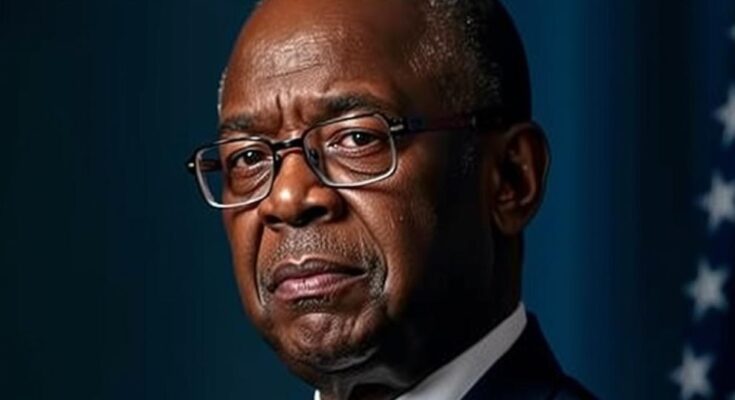President Felix Tshisekedi of the Democratic Republic of Congo has suggested revising the constitution, potentially changing presidential term limits, during a speech in Kisangani. While he claims this decision could be left to the people, various groups express concern that this aims to undermine the constitutional limits established under former President Joseph Kabila. The political backdrop includes increased government repression against dissent and human rights violations since Tshisekedi’s re-election.
On October 23, 2023, Democratic Republic of Congo President Felix Tshisekedi delivered a speech in Kisangani, proposing amendments to the constitution, including the possibility of altering presidential term limits. Despite previously committing to uphold constitutional regulations, Tshisekedi referred to the existing constitution as “outdated” and not reflective of the nation’s current conditions. He indicated plans to establish a commission aimed at drafting a new constitution by 2025, emphasizing that any decision regarding the elimination of presidential term limits should ultimately rest with the populace. Government officials and the Minister of Media and Communication have voiced support for this constitutional revision initiative. Furthermore, on October 10, the secretary general of the ruling party urged party members to advocate for constitutional changes among their supporters. The topic of presidential term limits carries significant historical importance in the DRC. The 2006 constitution, established under former President Joseph Kabila, explicitly prevents modifications to “the number and length of terms of office of the President” via article 220. Nevertheless, Kabila was able to extend his tenure past his constitutional limit in December 2016 through coercion and violence, during which time Mr. Tshisekedi was part of the opposition advocating for adherence to constitutional mandates on term limits. In light of Tshisekedi’s recent announcement, various human rights organizations and civil society groups, alongside opposition bodies, have expressed concern. They fear that the President’s intentions may be to circumvent the established two-term cap. Mr. Tshisekedi was re-elected for a second term in December 2023 in an electoral process marred by violence and irregularities. Following this re-election, there has been a notable increase in governmental repression against opposition members and critics, as well as a concerning trend toward limiting fundamental rights, such as freedom of expression and the right to peaceful assembly. Reports indicate that at least three politicians and two defenders of human rights are currently detained arbitrarily. While amendments to a constitution are a standard procedure globally, any proposed changes in the DRC must be consistent with international human rights obligations, particularly ensuring that every citizen has the opportunity to choose their leaders through credible and regular elections.
The Democratic Republic of Congo (DRC) has a tumultuous history concerning political leadership and constitutional adherence. The constitution established in 2006 under President Joseph Kabila contains strict provisions against altering presidential term limits. This framework has been a focal point for activism and political discourse, particularly given Kabila’s controversial exit from power amid allegations of electoral misconduct and human rights violations. In this context, President Felix Tshisekedi’s recent proposals for potential alterations to the constitution signify a critical juncture in the nation’s political landscape, raising concerns over the safeguarding of democratic principles and civil liberties.
In summary, President Felix Tshisekedi of the Democratic Republic of Congo has proposed amendments to the constitution that may include changes to presidential term limits, asserting the current framework is outdated. Amidst both public support and significant opposition to such moves, concerns regarding the potential erosion of democratic practices and human rights in the DRC persist. The political implications of these proposals are profound, particularly considering the historical context of governance in the nation. It remains imperative that any constitutional amendments respect international human rights laws to ensure the democratic rights of the Congolese populace are protected.
Original Source: www.hrw.org




